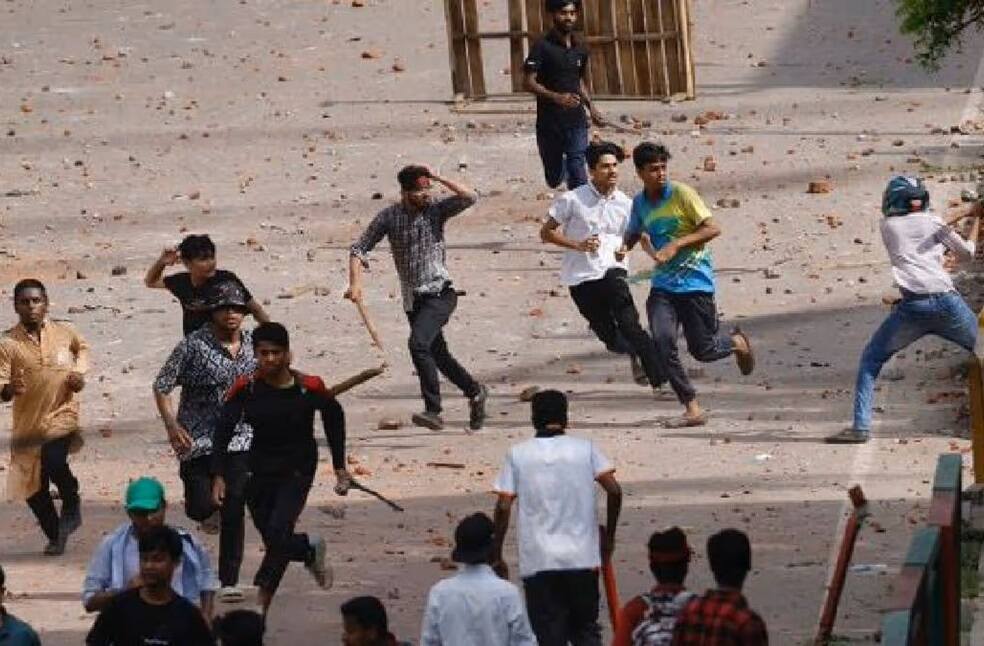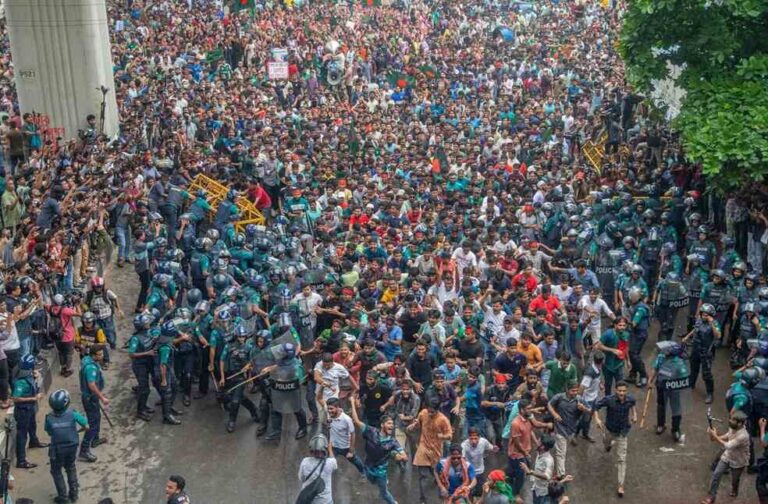Dhaka: Bangladesh has closed schools and universities indefinitely following violent protests over government job quotas that resulted in six deaths. University students have been long rallying against the reservation system, which allocates public sector jobs to the children of war heroes who fought in the 1971 independence war, as well as to women, ethnic minorities, and the disabled.
One-third of government job posts are reserved for the children of war heroes, a system students argue is discriminatory and want to be replaced with merit-based recruitment. Clashes erupted in several cities, including Dhaka, between anti-quota protestors and supporters, particularly from the Bangladesh Chhatra League (BCL), the student wing of the ruling Awami League Party.

The confrontations saw students attacking each other with bricks and sticks, while police used tear gas and rubber bullets to break up the violence. Student activists reported hundreds of injuries.
Government jobs are highly preferred in Bangladesh due to their competitive pay, with over half the positions reserved for specific groups. Critics argue the quota system unfairly favours the children of pro-government factions supporting Prime Minister Sheikh Hasina, who secured her fourth consecutive election victory in January.
Although the government abolished the quota system in 2018 after similar protests, a court ruling in June reinstated the quotas, leading to the latest demonstrations. Officials confirmed three deaths in Chittagong, two in Dhaka, and one in Rangpur.

UN Secretary-General António Guterres urged the government to “protect the demonstrators against any form of threat or violence.” In response, the government has deployed paramilitary forces, including the Border Guards Bangladesh, in five major cities to ensure security.
Bangladesh’s top court suspended the present reservation system last week, but protests are expected to continue until it is permanently removed. The case has been listed for hearing on 7th August.



